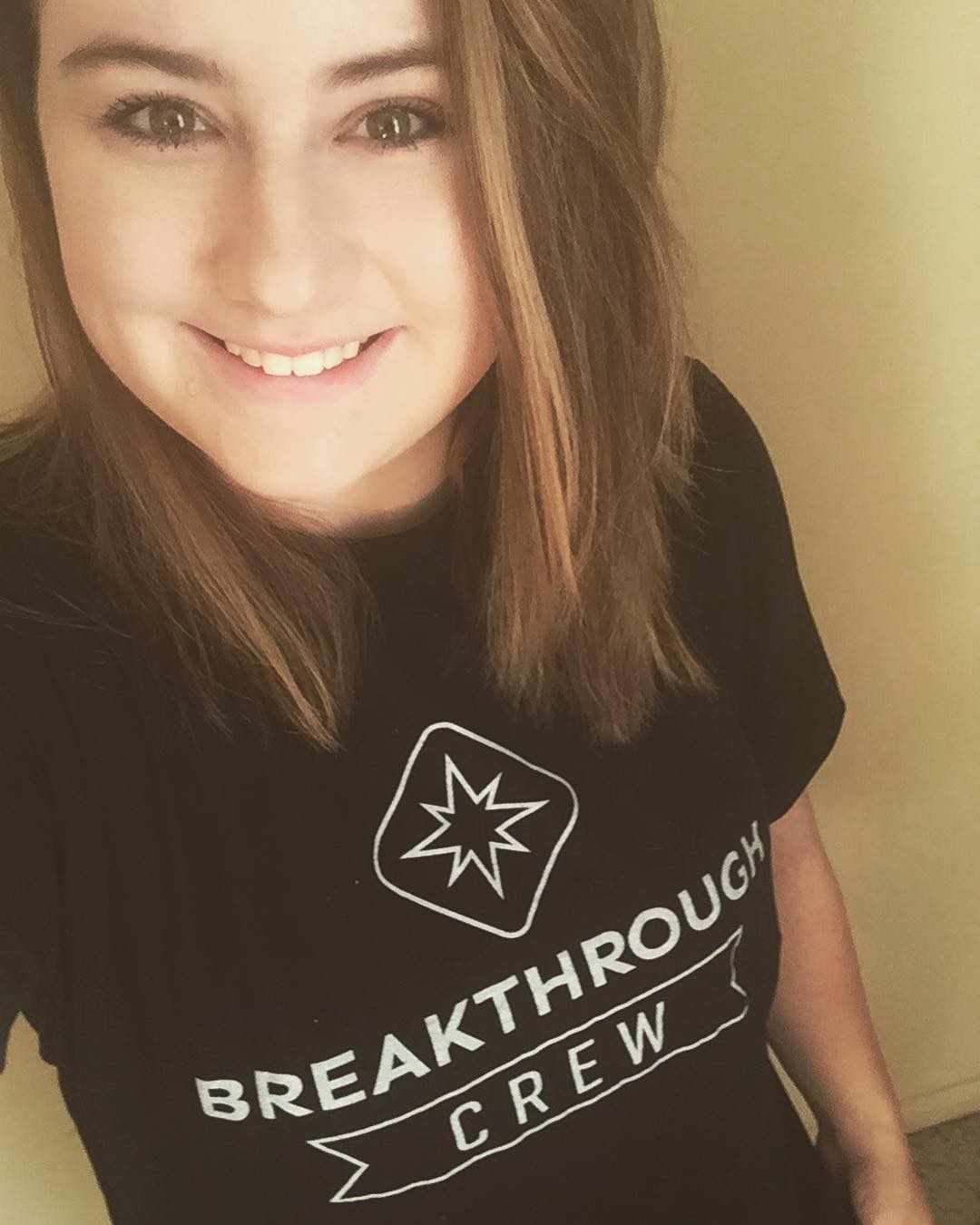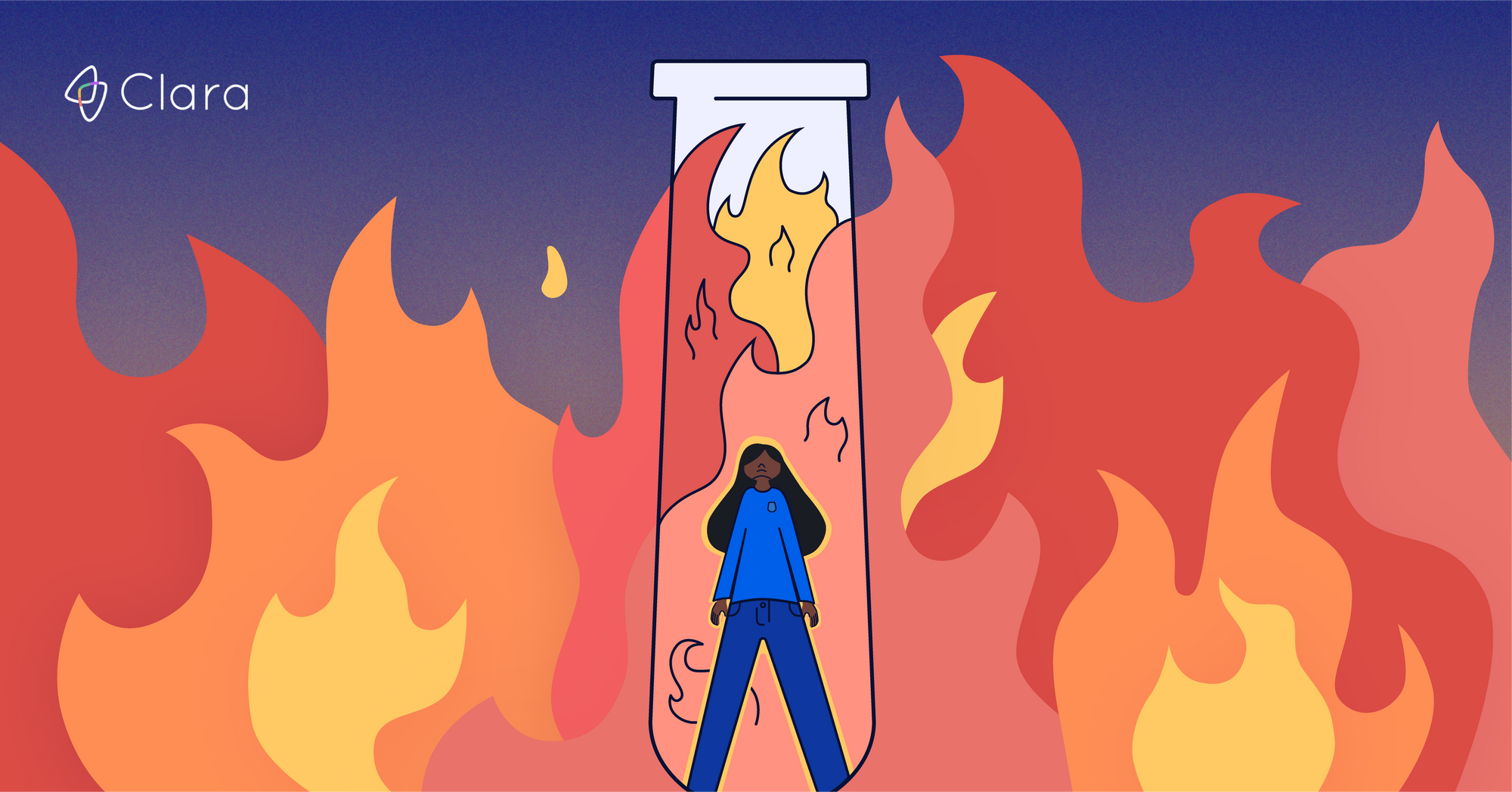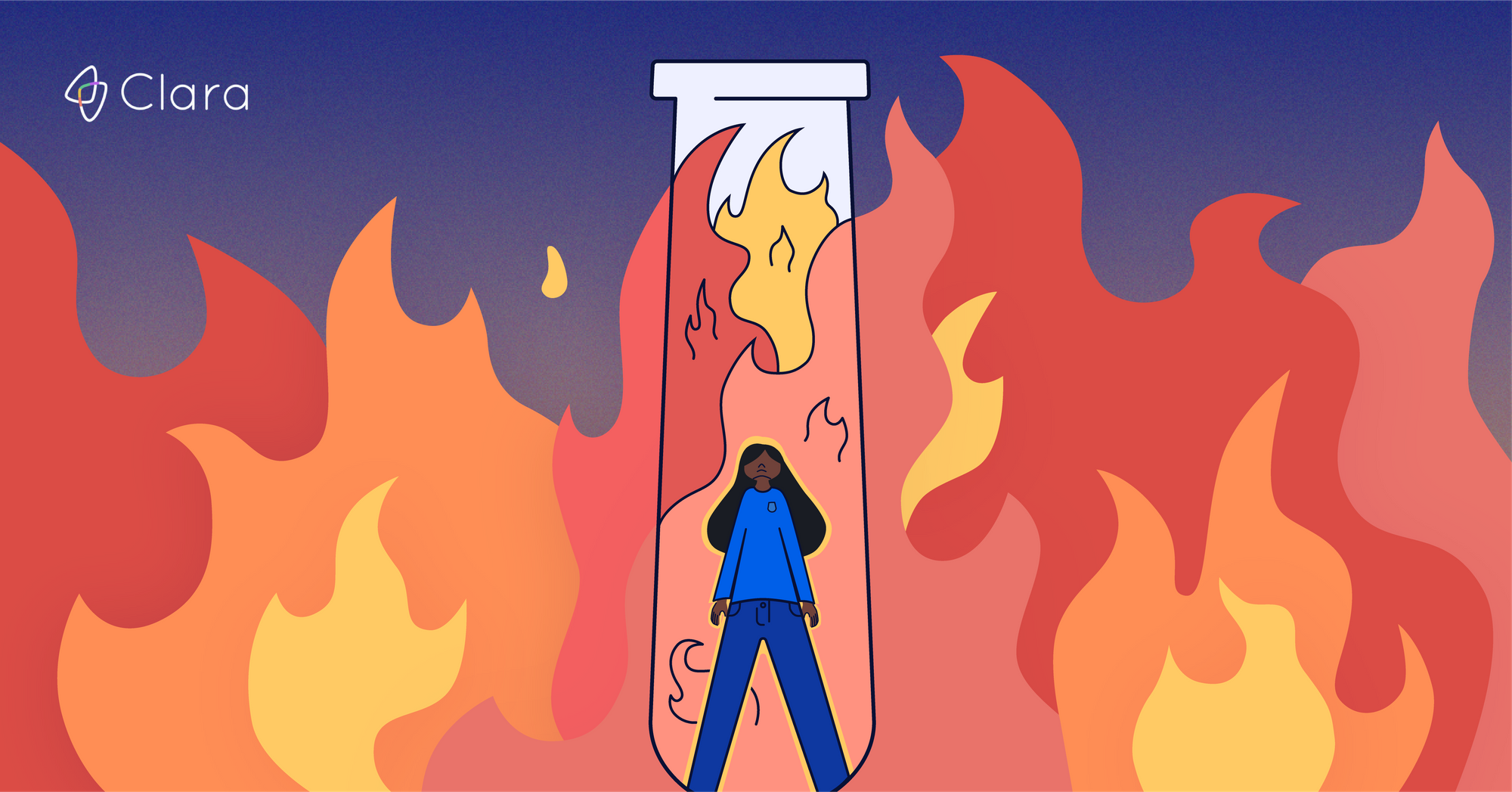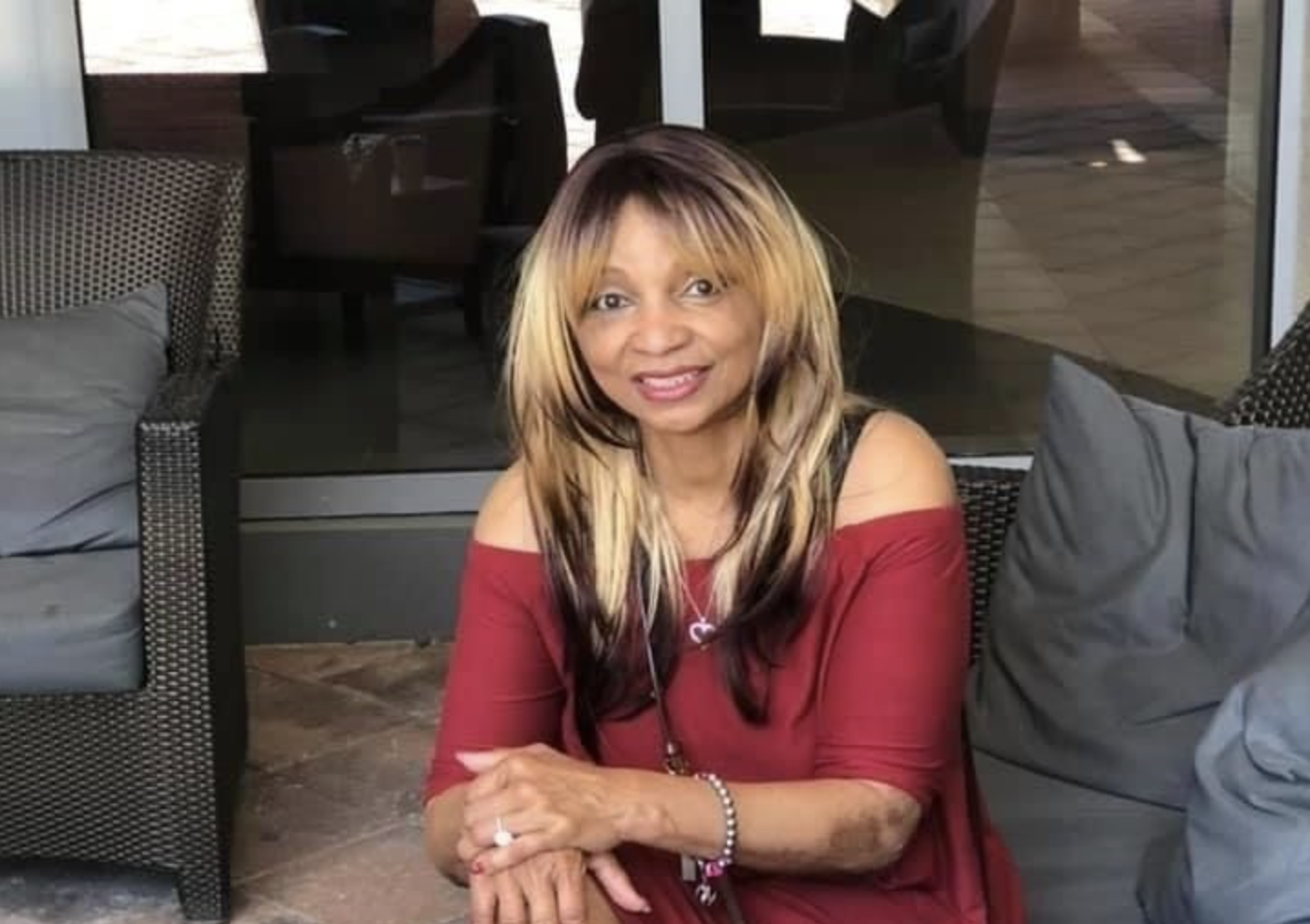Hello everyone, and welcome to the Patients Have Power Podcast! Our latest Patients Have Power episode is called "I just could not get a smile off my face!", (You can subscribe to the podcast at Apple Podcasts, or listen to it with the media player above).
We are so excited to have Savanna with us today. Savanna is one of our Breakthrough Crew ambassadors.
Savannah was told she had depression... when, in fact, she was living with arthritis. Now, she uses her condition as an opportunity to give back to research through participation in clinical trials, patient advocacy, and sharing her story.
She is an autoimmune warrior living with a few different chronic illnesses. And we're gonna chat with her about her journey today, her journey through some misdiagnoses and some other experiences that she's had as a chronic illness patient.
Lilly Stairs: So without further ado, I'm gonna jump right in and flip it over to you, Savanna, to give us the overview of your journey thus far in five minutes (if you can). I know that there's been years and years and years of experience as a patient, and so I know it can be tough to pack it into five minutes, but if you could do that, that'd be a great way for us to start.
Savanna Braun: Okay. So, I guess around like three or four years old, my symptoms had kind of been building with breathing problems. And it finally came to a point where my parents had to bring me in, because it was just getting so bad.
And it turned out that I was in an asthma exacerbation, which is kind of like an asthma flare, but you'll have more severe symptoms. And, it's constant, instead of just continual asthma attacks. You'll have trouble breathing all the time.
And so I got diagnosed with asthma, and we had a hard time getting it under control. When I was 12 years old, we finally got a hold on it and it was pretty well-managed. But then at 14, we started noticing that I was having joint problems, especially while I was swimming and walking around school.
It was getting bad enough to where I was having to swim in the injured lane, and I was on three different swim teams. So there was a lot of moving around. We just thought maybe it's a sports injury.

Savanna Braun: And so, we went to this fancy sports medicine doctor downtown who worked with a bunch of professional sports teams. He diagnosed me with something that we can't really remember, but it had something to do with my joints collapsing, and he was just like,
"So, you can't really do anything about it, genetic. Just take some ibuprofen, do some elliptical work, physical therapy, and ice."
Savanna Braun: But as you can probably assume, that did not work out at all. My symptoms just kept getting worse. And two years later, that's when it started spreading to other joints. My hips, my ankles. My neck and my elbows. And I had just kind of given up on the physical therapy because it was hurting me more, and it was just turning into a big waste of time.
Being on three different swim teams, time was of the essence.
Savanna Braun: But I kept taking the ibuprofen when I wasn't feeling good - didn't help at all. Ice did help some, I guess it just numbed the pain though. And then around 18, it spread to my back, my wrists, and my neck. That was my first year in college, and I was going to a school that was huge. I just could not handle it.
I started dealing a lot with depression and anxiety, and by the end of that school year, I was in such a bad emotional and physical place to where I decided I shouldn't go back.
So, I decided to focus on my health.
I spent a year and a half trying to get better. Mostly, it was really just trying to get my emotional health back to where it was, 'cause I had been told there's nothing you can do about the physical, so I didn't really address that at all.
But I finally got my emotional state to where I felt like I could do well, and I had been doing really well in my college classes. I went to a community college for about a year, year and a half, I think. And I transferred to a different campus that was smaller, so it was therefore easier on my joints. I was hoping.
Savanna Braun: But that semester, it got really, really hard on my joints. And that summer, I decided to go see my primary care doctor who I'd been with for a long time, and she was just like, "I think you might have Rheumatoid Arthritis (RA)."
So she did some blood tests, and my rheumatoid factor was a little elevated, but not that much. But she sent me to a rheumatologist, and this rheumatologist was like
"None of your blood tests really show anything. And I mean, your hands aren't hurting, so I don't really know what's going on. I think it's just depression."
Lilly Stairs: Oh, god.
Savanna Braun: Yeah. I was super impressed.
Lilly Stairs: Wow.
Savanna Braun: So I was just like,
"Maybe it is all in my head. I must be crazy."
Which was ridiculous, because my depression was in the best place it had been for most of my life. It was really tough. But I went back to college for about a year.
Lilly Stairs: So you were told that this really severe joint pain that you were having was depression?
Savanna Braun: Yeah.
Lilly Stairs: Wow. How long did it take for you to make the decision to say, "Okay, this isn't depression?" 'Cause for a while it sounds like you said, well, maybe this is all in my head.
Savanna Braun: Yeah. I kind of sat with that. The rheumatologist was in the summer, and in the spring that following year, I met back up with a friend who had RA, and she had a couple of other things too. She just really encouraged me to go seek out another opinion.
Because even on that small campus, I was like in tears some days trying to get to class.

Savanna Braun: And so, she just kind of encouraged me and helped me kind of get my head-space in the right frame of mind, so that I could finally go and seek out a better doctor.
In August, I finally found a rheumatologist who I felt like would listen to me. She had some pretty incredible reviews online. And so I felt really confident going to her. It was like, a four month wait to get in with her. But I was like,
"You know what? It's a sign."
And with my physical health, I decided that it wasn't a good idea to try and go back to school while I'm basically sobbing every day to class.
Savanna Braun: So, I decided to just do online school and get some of my physical symptoms under control. I started seeing a gastroenterologist too to try and get some of my IBS and GERD symptoms taken away, or at least be managed.
And he was really great. We got a lot under control, and he was just like "I can't believe you haven't been diagnosed with some sort of arthritis yet. It's very obvious to me that you're in pain."
Savanna Braun: I think that was in September or October. And then in November, that was finally my appointment with this rheumatologist. She was pretty horrified that the old rheumatologist had put me on 2400 milligrams of ibuprofen a day. And she kind of went over all of my case, and she diagnosed me with psoriatic arthritis and spondyloarthritis.
Lilly Stairs: And how happy were you to just finally have a diagnosis? Finally, it wasn't all in your head, right?
Savanna Braun: Yeah, I just could not get a smile off my face. I was like,
"I am not losing my mind. This is not all in my head. I am so validated, and I'm finally gonna get treatment."
I was staying home, doing the online school, searching, waiting for months to get this appointment. It was all worth it because she was just incredible, and she was horrified about the treatment that I had received.
I knew that she cared for her patients, so that was really great.
Savanna Braun: And we ended up finding that my liver was damaged from all of the ibuprofen that I had been taking.
Lilly Stairs: Oh, no.
Savanna Braun: And so that was pretty upsetting. I believe liver disease is fairly common in psoriatic arthritis, so it was probably a mixture of the two. And so, we've been trying to keep that under control, trying to get liver enzymes down. We've been through a couple different treatments for the psoriatic arthritis.
We haven't really got it under control yet, but I feel so much better just having someone trying to help.
Lilly Stairs: Absolutely. So, what is your official list of diagnoses, then?
Savanna Braun: Let me get my list out.

So:
- Psoriatic arthritis
- Spondyloarthritis
- Psoriasis
- Severe persistent asthma (or I guess it's moderate severe, or moderate persistent now.)
- Muscle elasticity
- Occipital neuralgia
- Drug-induced liver injury
- IBS
- GERD
- I have some sort of vitamin absorption problem, we're not sure what that is
I had sleep apnea, but I had a surgery in March, I think, to remove adenoids and tonsils. And I had had really big ones for most of my life, and then with the autoimmune disease, obviously that makes your lymph nodes bigger for some people, and that probably caused the apnea, and so I haven't had a problem with it since, which is freaking incredible.
Lilly Stairs: And how have you handled having this list of diagnoses? Because that's a big list. How have you mentally been able to, I'm going to say, embrace - because I think that you've done a really great job turning this around and becoming an advocate. And so I'd just love to know what your thought process was, because we work with so many patients who are living with many different diseases.
And so how do you mentally become at peace with living with all of these diseases?
Savanna Braun: I think it was just a lot of giving myself time to accept:
"This is my reality and that's not gonna change."
And beginning to work with it. Because my body - if I fight my body, and I fight these diagnoses, and fight these conditions against them, I'm gonna be miserable. So embracing them as part of what makes Me, Me was really helpful in my acceptance of that, and learning how to just work with my body.
And also, support groups. Those have given me so much confidence. Getting active within the chronic illness/disability community on Twitter was huge as well.
Lilly Stairs: Thank you for sharing that. Thank you. And you've done a lot to advocate for yourself to push for these diagnoses, to push to figure out what's going on, to push for the right treatment.
Lilly Stairs: And one thing I'd actually really love to talk to you about is your experience searching for a clinical trial, because you've been working with Clara, actually, to try to find one.
Savanna Braun: Yeah.
Lilly Stairs: Do you wanna tell us a little bit about that and why you decided you wanted to look for a clinical trial, how you even found out about it, and what the process has really looked like for you?
Savanna Braun: So, being active in the chronic illness community, I started learning more about how important clinical trials are for us.
Because without them, we don't get medications.
And so, a general studying of people in observational studies was something that I really wanted to contribute to, because I felt like I was doing something more with my time. I was turning something really negative in my life that kind of stinks (being sick, it's not fun).
But I could use doing that. I could use my diseases to try and help others with the diseases by giving my body the science. If you wanna experiment on me, go right ahead, I don't care.
Lilly Stairs: And so, you were looking for an observational trial, then?
Savanna Braun: Yeah, for the most part. It's mostly been just a lot of searching and trying to see what I really wanna do, 'cause there's so much out there. So I'm still kind of in the middle of trying to figure it all out and find a study, and y'all have been super helpful in trying to get me hooked up with one of the studies.
I've done one though (so far). I think it was just through the Humira app that I heard about it, and they sent me an observational study. And it's not this big thing - it's a survey every two weeks, which is up with the dosage I believe. So I've been doing that, which it feels good. It's also really helping me be more in tune with everything that's going on. And it's not a ton of work.
I can just answer the survey and feel like I'm contributing, which is cool.
Lilly Stairs: Yeah, that's wonderful. And how have you found - in terms of the process of trying to search for trials and figure out what might be a fit for you - how have you found that process to be? Has it been frustrating?
Did you find that there was a lot of information online, or was there not really a lot of information?
Savanna Braun: I found that it was pretty easy, especially through Clara, 'cause I could put in so many search filters and it didn't look overwhelming.
Whereas with clinicaltrials.gov, it's super overwhelming and there's lots of words, and there's just so much.
Lilly Stairs: Yeah.
Savanna Braun: It (clinicaltrials.gov) will tell you, this study is available, but it's not actually available. Whereas on Clara, it's generally one that's available, I think. I have never found one that had stopped recruiting.
Lilly Stairs: Right, right. It can be very difficult, and obviously, that's why we started Clara so that we could make it easier for patients to try to connect to trials. So I'm glad that your experience has been good. And we're gonna keep working to help you find what's right for you!
I appreciate your thoughts around this idea that you wanna be able to give back, because I think that's a really wonderful reason that we do see a lot of patients or volunteers coming in who are interested in helping to advance research, that we can get some new treatments out there.
Savanna Braun: Yeah, it's so important.
Lilly Stairs: So shifting gears a little bit, I'd love to hear more and get a little personalized. I don't know if you've seen some of our latest podcasts, but we're getting a little spicier and more provocative in what we're talking about, if you will.

Lilly Stairs: And so I wanted to talk to you a little bit about your personal life and how it has impacted, how your personal life has been impacted by living with multiple chronic illnesses. Are you dating? What's your life like with friends? How does all of that work for you?
Savanna Braun: So, I honestly have been so busy with trying to keep my mental health in check and trying to get all of these diagnoses and treatments that I just have not even thought about dating since, like, high school. And it's never something that I've truly desired to go and seek out. That's kind of just been totally on the back burner. And I'm totally okay with that. I know some people aren't.
But I think I just kind of throw myself into something and nothing else really matters. Which, with friends, that's obviously kind of a different story. I've made a lot of friends over the years who are just really great people and reconnected with people from high school. Maintaining these relationships are pretty difficult with these chronic illnesses, because most people our age are super active and they wanna go out and go to clubs and do all these crazy things, like go rock climbing or things like that.
And I just don't have the ability and I don't have the energy for that.
Savanna Braun: So trying to kind of get through to people who don't really have any experience with that is pretty difficult, and it really makes me sad sometimes.
But I found quite a few people who've been able to get it in their heads that this is the reality that I live in, and that I can't do everything that they want to do with me. So figuring out how to hang out is a little bit more of a challenge, but they're game and I'm game, so that's fine.
Lilly Stairs: Good, good, good. Well, I'm glad to hear it seems like you have a really good head on your shoulders about all of this and you've developed a positive attitude and tried to find work arounds.
Do you have any advice for somebody who has maybe just been diagnosed with a chronic illness, or a few different chronic illnesses? Is there anything that you would tell them when it comes to personal life and how to manage it?
Savanna Braun: Just be honest about your limits. Because you are gonna make yourself so miserable if you're gonna constantly push yourself to be able to do what everyone else can do. Accepting that you have limits is hard, but it is so important in maintaining your physical health. And your physical health, it has to be good to function in life.
Being able to learn that in college is probably way easier than trying to learn it from the get go right out of college, and trying to get into the workforce and navigate that with a chronic illness. I'm sure that's hard. I still haven't gone into that.
Lilly Stairs: Sure, sure. Well, I think that's a really empowering statement to share.
Lilly Stairs: And really leads me into my next and final question, which is, what does patients have power mean to you?
Savanna Braun: I think it just means that you can have control over your process of getting diagnoses and managing your chronic illnesses. That's the main thing that has driven me to be able to not give up on trying to get a diagnosis and get treatments.
Knowing that I have a lot of power over my medical care has been - I guess it fills me with a lot more confidence when I approach my physical health, and I'm not just taking what one doctor said for Bible.
Lilly Stairs: Yeah, that is a phenomenal answer and a perfect way to end the podcast. So, thank you so much for joining us, Savanna. It was a pleasure to have you.
And thank you all for tuning in to the Patients Have Power podcast! We look forward to seeing you next week. You can watch us on YouTube, you can also listen in on iTunes, totally up to you. Give us a review, add a comment on YouTube, and tweet away at us on Twitter. We look forward to hearing from you.
Thank you again, Savanna.
Savanna Braun: Of course.

Keep following Savanna's health journey on twitter @SavannaBraun and instagram @SavannaBraun!






